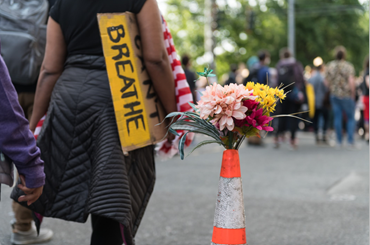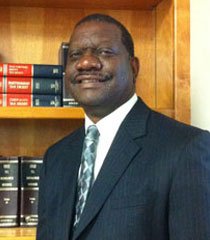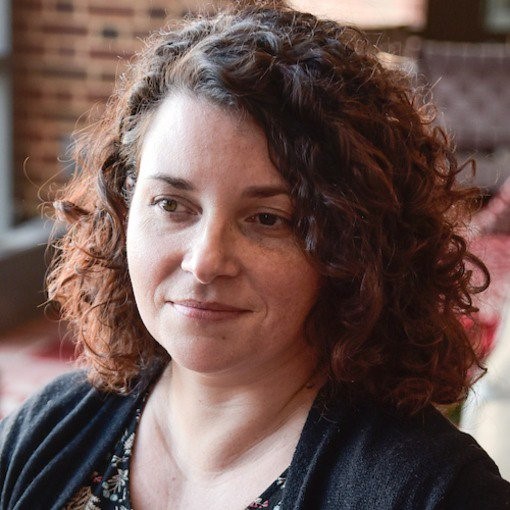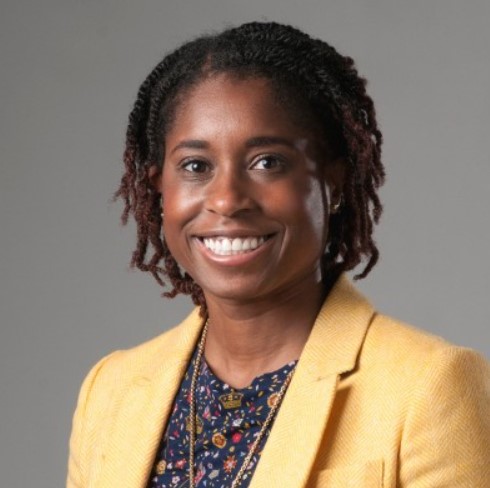
A year ago today, George Floyd’s murder reignited calls for racial equality and justice across the country. Many of HERC’s members are working to ensure that their institutions respond to these calls by establishing initiatives to end systems and structures that create racial inequality on their campuses.
HERC hosted a webinar, “Campus Responses to Racial Discord,” that featured panelists from the University of Texas at Arlington, The Ohio State University, and the University of Missouri-Kansas City. They shared what their campuses were doing, including their planning process, initial execution, and plans to support the work moving forward.
We recently checked in with representatives of these institutions to reflect on their campus efforts to date. As Eddie Freeman, Executive Director in Human Resources at the University of Texas at Arlington, reports, “We have made tremendous progress, but there is much work to be done. This is only the tip of the iceberg.”

Eddie Freeman, Executive Director, Human Resources, The University of Texas at Arlington
Q: One year ago, you shared a series of goals developed by senior leadership, which ones are thriving?
A: While we have a diverse student body, our faculty and staff were not always attuned to racial and social justice issues. The goals established then by our interim President addressed these issues, which our senior leadership were firmly behind and put in the resources to support achieving them. I am happy to report that of the eight goals I talked about, five have been achieved and three are past the initial stages.
We announced $25 million dollars in scholarships for low-income, first-generation, and first-time-in-college students. In the coming year, we expect that this gift alone will enable us to award at least 100 more students than last year.
The Office of Human Resources, working closely with Faculty Affairs, has been very active in implementing a wide range of diversity and inclusion training for faculty and staff. Between July 2020 and early February of this year, we led 18 training sessions attended by 640 staff and faculty.
We worked closely with the UTA Police Department. They participated in our diversity training sessions and were active in university-wide community listening sessions.
Our inaugural VP of Diversity, Equity, and Inclusion started recently, and we will be adding staff and programming in the Office of Multicultural Affairs next year.
In Fall 2020, the University updated the curriculum of the Student Success UNIV 1131 and 1101 courses to address race, diversity, social justice, and equity through a partnership between the Office of New Student Courses, the Office of Multicultural Affairs, and a task force composed of faculty, staff, and students across colleges and departments. The curriculum has served more than 4,900 students so far.
These are just a few highlights of what we’ve accomplished since last year.
Q: What’s next?
A: Under the direction of our new Vice President of Diversity and the newly established Office of Diversity, we are developing a strategic plan to ensure that all of the goals are a priority and to keep the momentum gained last year. Our plan is to see full implementation of the remaining goals over the next year and, with the help of our Diversity Committee, develop new goals. This is a tremendous opportunity to fulfill an institutional mission and I am eager to play a role in moving us closer toward racial justice and social equity for all UT Arlington faculty, staff, and students.

Sara M. Childers, PhD, Director, Director, Strategic Diversity Initiatives, Training, and Assessment, The Ohio State University
Q: Reflecting on Dr. James Moore, III’s remarks at the 2020 webinar, which initiatives are thriving?
A: The Task Force on Racism and Racial Inequities is currently drafting its final recommendations to the university, including implementation plans.
The Toolkits and partnerships mentioned in the webinar – Racial Justice Resources, Respectful Dialogue Toolkit, Anti-racism reading guides – became part of a larger Education for Citizenship Initiative launched by ODI in partnership with our office of Institutional Equity. We continued to add tools and resources to support our campus through election season, inauguration, and into this year. The university has continued to invest in this initiative and we will continue with E4C next fall with a series of events and programs focused on dialogue, civic engagement, and our values. Education for Citizenship is our Ohio State Motto.
The Seed Fund for Racial Justice has completed two rounds of funding. This program may continue.
Our institution continues to be invested in ensuring that our campus and our city are safe for everyone and is actively engaged in understanding and addressing community policing issues. The Glenn School of Public Affairs completed an after-action review of how our city handled last summer’s protests. More scholarship will continue in this area and we are partners in change for our city.
I think we have been successful for many reasons. The national conversation about racism was catapulted with the wave of murders and these issues have converged with the mission and vision of diversity and inclusion. We are leveraging and seizing this moment. As Dr. Moore mentioned, our work begins and ends in collaboration. This work would not be possible without the partnerships we have across our institution and the staff, faculty, and students who are committed to these efforts. Equally, our new President is committed to making positive change and that helps tremendously to have the institutional support behind this work.
Q: What’s next?
We will see. Based on the Final Recommendations of the Task Force on Racism and Racial Inequities, which is not public yet, we may see some inspiring initiatives to move the needle on representation, climate, and equity on our campus.

Makini L. King, Ph.D., Interim Vice Chancellor and Director of Diversity and Inclusion, University of Missouri-Kansas City
Q: Kimiko Black Gilmore, the former Chief of Staff discussed a series of initiatives – both from the top down and bottom up – that were happening on your campus. Which of those initiatives are still thriving?
A: We’ve hosted Critical Conversations, which are convenings of regional leaders for tough conversations our community needs to have about race. Last month’s convening was on Black Excellence in the Classroom. Through our Urban Partnerships work, UMKC was recently granted $5 million dollars for Health Equity specifically for communities in east Kansas City.
All UMKC employees are required to take mandatory training on bias and microaggressions, which complements UMKC’s existing robust DEI training. Additionally, Black faculty and staff have regular check-ins and from those meetings, a Black Alumni group was developed as well as continued engagement through UMKC Affinity Groups.
Initiated by the chancellor, we completed a review of hiring and recruitment policies to ensure that they meet national standards and encourage diversity. UMKC has instituted many policies and practices aimed at better recruiting and retaining minority faculty, staff, and students and the Recruiting and Retention Task Force reviews progress and practices to ensure that our campus is reflective of the Kansas City community. Based on the task force’s recommendations, a Faculty Search Support Team was created to intimately support faculty search committees in inclusive hiring practices. Two DEI Faculty Fellows were hired to be part of this team.
The leaders of the UMKC Black Student Leaders Task Force’s mission is to evaluate, improve, and develop programs and procedures to enrich the experiences of Black students at UMKC. The task force commissioned a unity plot called “The Divine Gardens” to commemorate Black Greek Organizations.
Q: What’s next?
Guided by Pillar 4 of our Strategic Plan, through education and training, relationship building and conversation, revision and implementation of inclusive policy, and through the development and sustained initiatives, we will continue to work toward building an inclusive environment so that all of our community members can thrive.
#FeaturedContent